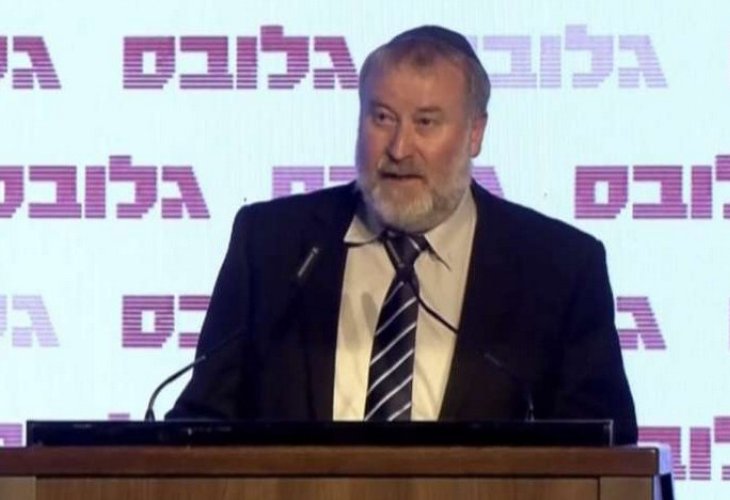Attorney General Avichai Mandelblit Returns to His Roots: A Surprising Revelation from His Late Father
Attorney General Avichai Mandelblit shares a rare interview about the desecration of his father's grave ("One must pity whoever did this") and his relationship with his father during his lifetime - when he became religious.

To mark the first anniversary of his mother Ada's passing, the Attorney General and his family visited her grave at the Yarkon cemetery, and immediately afterward, the grave of his father Baruch, who passed away 15 years ago.
At his father’s grave, the family was shocked to find it desecrated, and it appeared that whoever did it knew of their visit – as it did not look that way a few months earlier at the annual memorial. "One must pity whoever did this," said Mandelblit in a rare interview with journalist Eyal Levi from Maariv. "I don't know how he will get out of this. It's very difficult to ask forgiveness from someone who has passed away. It's very complicated."
In the interview, Mandelblit reflects on the moments when he decided to become religious, way back in his youth – a step that would later distance him from his father, who came from a secular background. Despite these differences – ultimately, the two managed to overcome everything. "We had an excellent relationship. I don't like the word 'admiration,' but it was somewhere between appreciation and admiration. He was a wise man, without any ulterior motives. We had long conversations, and always in good faith. Not forcefully."
The Father to His Religious Son: "I Care About Only One Thing – Not Losing You"
When debating between studying law or enlisting in the Golani Brigade, his father held discussions that were pleasant yet logical. "He said it's better for me to study and have a profession and that I can contribute to the state in another way. In the end, thanks to him, I became the Chief Military Advocate General and later the Attorney General. He led me onto the path of academic preparation and really built me up for these things. The only person I would consult with on everything, and even today I sometimes think about what he would say – is him."
Despite their captivating discussions, there was one topic they couldn't freely discuss: becoming religious. "He spoke to me a lot, but about my becoming religious, he didn’t say a word. At some point, it bothered me, and I asked why. He replied, 'On matters of logic and reason – I speak with you. You believe, and matters of faith lack reason. Either you believe, or you don't. First, I don't know who is right. Maybe you, maybe me. Second, I can't persuade – so there's no point in trying. I care about only one thing – not losing you. You will remain my son, and I will remain your father. We will be together and love each other.'"
After a few months, the son again felt uneasy about his father not discussing the issue with him and felt the need to ask his father if the fact that he wore a kippah and tzitzit bothered him. "I saw, I understood, and I respect you," the father honestly replied, but unlike him – it did bother his mother. "She did speak and was bothered. She constantly asked me 'Why do you need this? What's wrong with you, what happened?!'"

